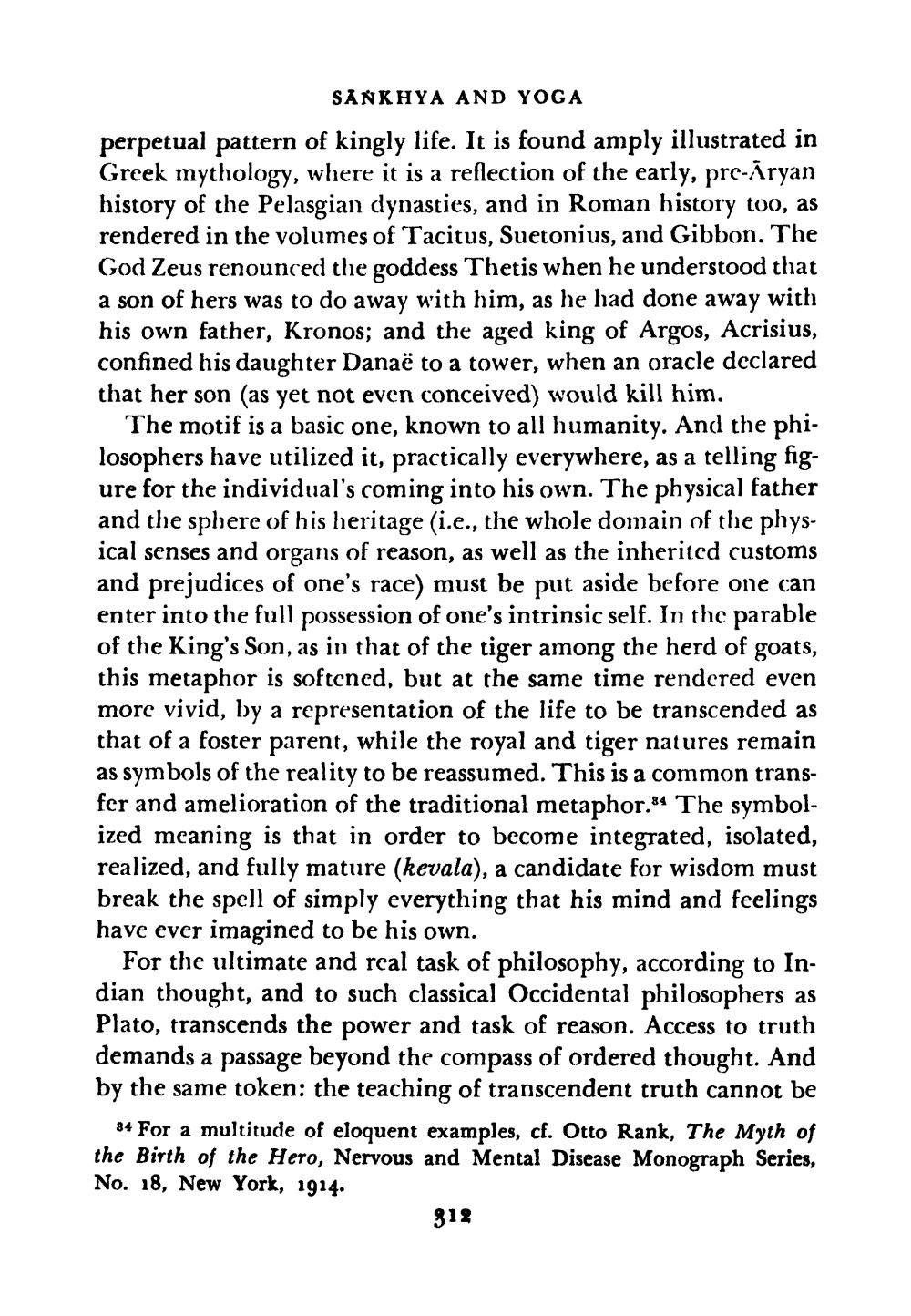________________
SANKHYA AND YOGA perpetual pattern of kingly life. It is found amply illustrated in Greek mythology, where it is a reflection of the early, pre-Aryan history of the Pelasgian dynasties, and in Roman history too, as rendered in the volumes of Tacitus, Suetonius, and Gibbon. The God Zeus renounced the goddess Thetis when he understood that a son of hers was to do away with him, as he had done away with his own father, Kronos; and the aged king of Argos, Acrisius, confined his daughter Danaë to a tower, when an oracle declared that her son (as yet not even conceived) would kill him.
The motif is a basic one, known to all humanity. And the philosophers have utilized it, practically everywhere, as a telling figure for the individual's coming into his own. The physical father and the sphere of his heritage (i.e., the whole domain of the physical senses and organs of reason, as well as the inherited customs and prejudices of one's race) must be put aside before one can enter into the full possession of one's intrinsic self. In the parable of the King's Son, as in that of the tiger among the herd of goats, this metaphor is softened, but at the same time rendered even morc vivid, by a representation of the life to be transcended as that of a foster parent, while the royal and tiger natures remain as symbols of the reality to be reassumed. This is a common transfer and amelioration of the traditional metaphor.84 The symbolized meaning is that in order to become integrated, isolated, realized, and fully mature (kevala), a candidate for wisdom must break the spell of simply everything that his mind and feelings have ever imagined to be his own.
For the ultimate and real task of philosophy, according to Indian thought, and to such classical Occidental philosophers as Plato, transcends the power and task of reason. Access to truth demands a passage beyond the compass of ordered thought. And by the same token: the teaching of transcendent truth cannot be
84 For a multitude of eloquent examples, cf. Otto Rank, The Myth of the Birth of the Hero, Nervous and Mental Disease Monograph Series, No. 18, New York, 1914.
812




